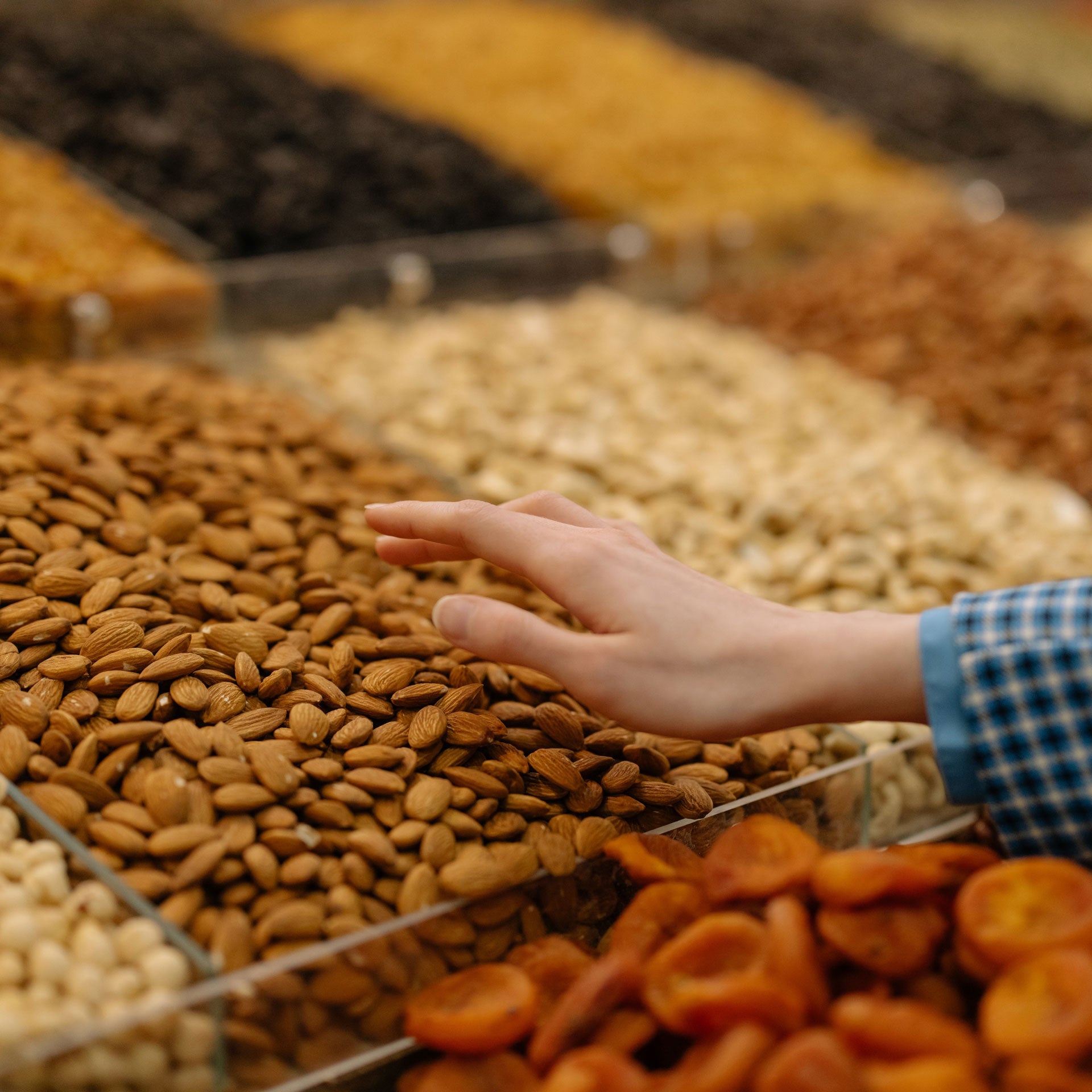Make every day a Mediterranean holiday, at least when it comes to food. There’s nothing like the fresh flavours of Italy, Greece, Spain, the Levant and North Africa – olives, tomatoes, cheeses, fish, wholegrains, lentils and even a splash of wine. And the cherry tomato on top is that the Mediterranean diet might make you live longer and feel healthier!
Research shows that people who follow a Mediterranean way of eating tend to have healthier hearts, and are less likely to die of pretty much any disease. The principles of the diet are: eat lots of plants and wholegrains; don’t be shy with healthy oils; include seafood, dairy and poultry in moderation; and eat red meat and desserts on occasion.
So, what are the components of this diet?
Fresh fruit and veggies
Many people in Mediterranean cities and communities still shop at local markets rather than supermarkets, buying super-fresh locally grown fruits and vegetables, with a lot of leafy greens in the mix. Tomatoes, lettuce, fennel, eggplant, broccoli, mushrooms, beetroot, onions and garlic are all popular Mediterranean vegetables. Fruits grown in the region include oranges, grapes, lemons, dates, figs, pomegranate, melons, pears and apples.
Legumes
Legumes are popular all around the Mediterranean, and form the bulk of many traditional diets. Think chickpeas, kidney beans, fava beans, and cannellini beans. Awesome meal additions made with legumes include hummus, falafel and tahini (see our Falafel with Hummus dish which includes all three).
Wholegrains
Wheat, lentils, wholegrain rice, buckwheat, bulgur, millet, rye and even corn make regular appearances in classic Mediterranean dishes like bread, pizza bases, flatbreads, souvlaki, paella, risotto, polenta, and grain-rich salads.
Nuts
Almonds, pistachios, cashews, pine nuts, chestnuts, walnuts and hazlenuts pop up in dishes, desserts and platters all over the Mediterranean. There’s a whole world of pestos to add to pasta, rice, and bread, or you can treat yourself to a pistachio gelato or almond-based marzipan sweets.
Oils, cheeses and eggs
Go hard on the olive oil – it’s the staple oil of the Mediterranean diet, it tastes amazing, and it’s a healthy oil linked to several wellness benefits. You can use it to cook, preserve, as a fresh ingredient in salads, poured over vegetables, or drizzled on bread. There are thousands of different Mediterranean cheeses, including mozzarella, feta and ricotta. Other proteiny and fatty additions to this diet can come from eggs, yoghurt, cream and milk.
Meats
Well, the Med is a sea, so you’d expect seafood to play a big part in its diet. Local Mediterranean seafoods include tuna, anchovies, mackerel, swordfish, crab, eel, octopus, squid, mussels, oysters and shrimp. Most of these are available in New Zealand, but there’s nothing wrong with adapting the diet with a bit of quality Kiwi snapper or tarakihi. Poultry is a classic addition when a bit of meat is needed in a dish. And, while red meat should be treated as a ‘sometimes food’, many classic Mediterranean dishes include lamb, beef or even rabbit.
Wine and desserts?
A lot has been made about the supposed health benefits of red wine. The truth of the matter is that alcohol should never be treated as a health food and you should always drink in moderation if you’re striving for a healthy and long life. That being said, many Mediterranean adults enjoy a small glass of wine with lunch or dinner and are no worse off for it. Desserts such as gelato, Turkish delight, panna cotta, churros, baklava and stuffed dates aren’t exactly healthy either, but they are delicious and you can eat them in moderation.
Eating Mediterranean with Fitfood
Looking to maintain your fit lifestyle and eat Mediterranean without adding hassle to your cooking routine? Fitfood has a range of beautiful, chef-designed and nutritionally balanced Mediterranean meals ready to heat and eat, including:
Frittata with Bacon, Courgette & Feta
Garlic & Herb Chicken Thigh with Harissa Roasted Carrots
Fresh White Fish with Crushed New Potatoes



